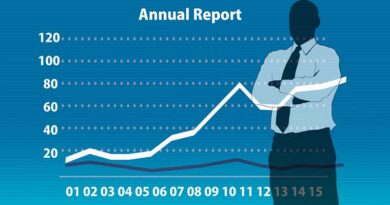What is Domain Authority (DA) in SEO?
Moz created Domain Authority (DA) as a way to predict ranking on results pages of search engines (SERPs). This gives you a feel of how strong a website’s backlink profile is or how good is it’s SEO health all in all. While Google doesn’t use DA as a ranking factor, it’s a very commonly used comparative SEO metric to benchmark the competitiveness of a website. DA gives businesses and digital marketers a better idea about how they should approach their SEO efforts.
How is the DA Score Calculated?
DA is a Moz-calculated metric based on multiple factors and primarily links, pointing back to the domain in terms of quantity and quality. The DA score ranges between 1 and 100, and the higher the score, the higher the likelihood of ranking higher in the SERPs. DA is a comparative metric and not an absolute ranking factor, so it should be analyzed based on competitors in the same industry.
Key Factors Influencing DA:
- Backlink Profile: DA is highly affected by the quantity and quality of incoming links. High-authority sites connecting to your website help your DA in good measure
- Link Diversity: DA grows naturally from a backlink profile with links from blogs, news sites, and forums
- Moz Spam Score: Moz assesses linked domain spam score. High spam values might have bad effects on DA
- Site Age and Authority: Domains that are older and have a solid track record of producing high-quality content and backlinks tend to have higher DA ratings
- Machine Learning Adjustments: Moz’s DA algorithm is based on Google’s ranking patterns, and Moz continuously changes the DA algorithm via machine learning
- On-page SEO Factors: User-friendly navigation, meta tags, and appropriate keyword placement on well-optimized websites may all indirectly increase DA
Logarithmic Scale:
DA follows a logarithmic scale, which implies that it’s easier to upgrade DA from 10 to 20 than from 50 to 60. A higher site contributes much more to your organic rank than a lower site, so the closer your site is to 100, the more difficult it will be to increase it. That is why high-authority websites need more significant link-building efforts to improve their DA scores further, while newer and smaller websites enjoy rapid improvements in DA with little effort.
How to Check your DA Score?

You can use various free or paid tools online for checking the DA of your website, however the following tools are most reliable:
- Moz Link Explorer is an official Moz tool that allows for checking DA, backlinks and spam scores
- MozBar (Chrome Extension): MozBar is a Chrome extension that lets you see DA and PA (Page Authority) while browsing around the websites
- Ahrefs Domain Rating (DR): Ahrefs’ DR is not the same as DA but gives a similar glimpse at the domain strength much like DA did
- SEM Rush Authority Score: SEMrush’s Authority Score rates how various sites relate to each other utilizing backlink data
- Ubersuggest: An SEO tool to use for keyword analysis and DA insights
To check your DA score:
- Visit Moz’s Free Domain Analysis Tool
- Enter your website URL
- It will allow you to get insights about DA, linking domains, and top pages
How to Increase your Domain Authority (DA)?
If you are about to start working on developing or improving your DA, you will need to put in consistent effort across multiple areas. Remember, building a good DA score is a long-term process. Don’t expect it to increase immediately after you make improvements to your website. It will take weeks or even months while you continuously create quality content and build quality links. Below given are the most important DA-boosting techniques which you can follow to improve your Domain Authority.
1. Build High-Quality Backlinks

Authoritative sites create search engine backlinks that communicate their trust and trustworthiness. Use these methods to create such backlinks:
- Guest Posting: Write high value content in your niche, and post as a guest on authoritative websites to get backlinks. Quality counts in this case, too – make sure your guest post caters to the website’s audience
- Create Link-worthy Content: Create long form guides, original research, infographics, case studies that naturally get backlinks from other sites
- Use HARO (Help a Reporter Out): Respond to journalist queries by getting featured in the well-known publications for exposure and credibility
- Broken Link Building: Check broken links on relevant websites and suggest that webmasters change them with your own content
2. Strengthen Internal Linking
Internal linking increases link equity and makes your website crawlable:
- Strategic Page Linking: Make sure that interlinking important pages or pages allows the right flow of authority and as a result, boosts visibility
- Do not have Orphan Pages: Pages with no inbound links will not be indexed well by search engines. Make sure that every page has at least one internal link throughout the page
- Descriptive Anchor Texts: Not all anchor texts for the exact same keyword should be the same
3. Remove Toxic Backlinks
If your website has links of low quality or ones that are spammy, they can hurt your website’s authority. To have a clean backlink profile, do the following:
- Audit Your Backlinks: Use Google Search Console, Moz’s Link Explorer or Ahrefs to find bad links
- Stay away from Spammy and Irrelevant Links: You can avoid remaining spammy and irrelevant by using Google’s Disavow Tool to remove the links from your ranking
- Regularly Monitor Backlinks: Setup monitoring alerts smartly – add the bad and good links, and immediately take proper action on the outflows
4. Optimize Website SEO and User Experience
Technical SEO boosts DA. Focus on these website optimisation elements:
- On-Page SEO: Meta titles and descriptions should be optimized, headers are important, and keywords should be used well
- Enhance Page Load Speed: Use Google PageSpeed Insights to check pages for performance issues and to make any necessary improvements in terms of speed. Images can be compressed, browser caching can be leveraged, and a content delivery network (CDN) can be used for better performance
- Ensure Mobile-Friendliness: Make sure the site is mobile-friendly and that there are no hiccups when visiting the site from any device. Google prioritizes mobile-first indexing
- Implement Security with HTTPS: Add an SSL certificate to your site, which will make your site more trustworthy and help it rank better in searches
5. Create High-Value, Shareable Content
Content is also crucial to DA improvement. It receives organic traffic and connections. Strategies to consider:
- Develop Comprehensive, Data-Driven Content: Publish long-form articles, whitepapers, and case studies on relevant topics and offer deeper insight into these topics
- Use Visual Content: Charts and video content are engagement bouncers and can be more easily shared or linked by other websites
- Leverage Evergreen Content: Choose topics that will always be relevant so that you will continue to get traffic and links
- Promote Content Across Platforms: To reach as many people as possible, distribute content via Social Media, Email Marketing, Industry Forums, etc
6. Gain PR Mentions and Brand Authority
This boosts brand reputation and makes your website an excellent source for industry things. Build brand authority by:
- Collaborating with Influencers: Work alongside industry leaders, bloggers, and experts to get exposure and to be considered credible
- Getting Listed in High-Quality Directories: To gain more visibility, submit your website to respected directories and suitable databases for your niche
- Encouraging Brand Mentions: Reach out to authoritative sources asking them to refer to your brand for relevant content or discussions
Conclusion
To improve your Domain Authority, you need to implement such a strategy: adding backlinks which are high in quality, internal linking which is strong, technical SEO, and valuable content. DA is not one of the direct ranking factors for Google, but it is an important SEO metric for competitiveness. Continuous website optimisation, creating authority, and improving UX is the key to success in SEO in the long term.





